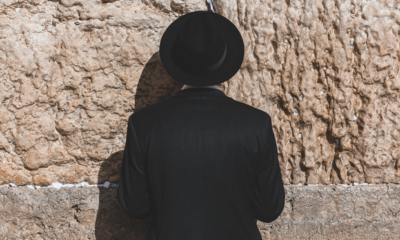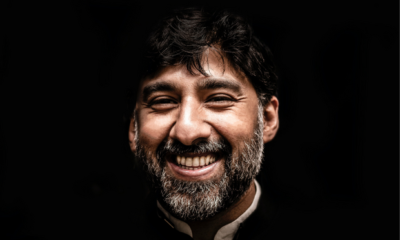Life
Identifying Your Emotions is the Key to Exponential Happiness

In the weeks and months following the heinous terror attacks of September 11, millions of Americans decreased their domestic air travel. As domestic flying decreased, car travel increased where a study found that people opted to drive longer distances rather than fly. Not taking into account 9/11, there were 331 airplane crash fatalities in the U.S from 1751 crash events. What’s interesting is there were 42,000 driving-related deaths in that same year. The number of deaths in air travel and road travel remained relatively consistent in subsequent years.
Statistics imply that post 9/11, Americans were more willing to risk mortality of long-distance car travel rather than adopt the minimal risk of air travel, presumably due to the perception of risk involved from terrorism threats. We can believe that the September 11 terrorist attacks may have resulted in a secondary toll of deaths as people made poor choices to avoid scenarios of risk. What has been made clear, is any large-scale threat to public safety affects our emotions and the decisions we make.
Our Emotional Responses
Our emotional responses are a reaction to the world around us. We’re supposed to smile at babies because it’s our evolutionary advantage to give infants positive emotions. We’re supposed to react with a fight or flight response under perceived danger because self-preservation is part of our DNA. What we don’t often think about is the thousands of micro reactions we face every day. The waiter at the restaurant is polite, so we respond with kindness.
The car next to us cuts us off in traffic, so we abuse them. While many emotional expressions are universal, sociocultural norms can dictate how we respond when coming across an intense emotion. For example, in Japan, people tend to hide their display of fear or disapproval when an authoritative figure is present. Conversely, in western culture like the United States, people are more likely to express their negative emotions in their presence and with others.
We can come across an intense emotion, not ignore it, control it, and use it to make the world a better place. Climate change, domestic abuse and human trafficking are all relevant examples in today’s world. Even protests of racial injustice become fueled by emotion. The adverse reaction we may feel about these issues can be used more positively by donating our time, helping others, or educating ourselves and those around us to become more aware.
Emotion is our human way of putting a meaningful stamp on our experiences. They are a key driver in our behaviour and shape our responses to what’s around us. Emotions enable us to make decisions, take action, connect and communicate with others, and build meaningful friendships and relationships. Our feelings are either short-lived or long-lasting. Understanding emotional behaviour in others informs us how to adapt our behaviour accordingly.
In our daily lives, we are often told not to ‘get too emotional’. When females show emotion, others see it as showing “too much”, or “overreacting”. Conversely, when men show too much emotion, or any form of emotion- Others may see it as being “weak”.
Emotions and Decision Making
Many of the decisions we make in our lives are almost instant and based on emotion. We’re not always in charge and can be too impulsive or deliberate for our own good. One moment we get a hot head and explode with the confidence of an idea; the next we’re paralysed by uncertainty. Antonio Damasio’s research has been instrumental in helping humans understand how emotions influence our behaviour- in particular, how we make decisions.
One of Damasio’s studies took a look into those who had damage to the brain’s emotional circuitry. In addition to finding that such people could not feel emotions, he also uncovered that they are unable to make decisions. The patients were able to describe the action they should be taking, but could not settle on a decision, even as simple as what to eat. Emotions enable us to weigh up options and come to what we believe to be the best outcome for ourselves. They are a vital component of our decision-making process.
When making a decision, we look for a way to satisfy a basic human need: happiness. It is why many of our choices are unconscious attempts to avoid guilt, fear and negative feelings, whilst trying to enhance our positive emotions simultaneously.
The strong influence our emotions have over our thought process means that our decisions are susceptible to error. And because we value our time, decisions are often fast and automatic, where we can feel a certain way for as long as possible. We then don’t often realise the full impact of the emotional interference in our decisions.
“Human behavior flows from three main sources: Desire, emotion and knowledge.” – Plato
3 Ways To Identify and Help Our Emotions
Our emotions are there for a reason. They act as the rudder of a ship that helps us navigate and steer through calm and rough seas. Taking time to understand our emotions and feelings not only spares us from unexpected breakdowns, but it’s also how we can create a happier self and live a happier life.
- Take time to engage with people. Read the emotions in their faces and show them you’re listening and paying attention. Visual feedback and facial cues often work well where your mirror neurons are activated and help you become more engaged.
- Communicate your emotions with others. Learn to articulate your thoughts and feelings and feel whether your automatic response is appropriate. Suppose you can identify the source of the emotional trigger. In that case, you will be able to assess the emotional temperature of a conversation better and defuse any tension through your actions.
- Slow Down. Think and assess what is happening around you. Our decision-making is capable of making errors in judgement and becomes easily influenced. By applying logical and rational thinking, you will be able to judge situations more effectively.
With exercising to help your emotions consistently, the growth that comes with it will set you up for success. Whether it’s personally or professionally, nurturing how you feel and becoming aware of strategies in dealing with emotions will create exponential happiness.
Life
Imposter Syndrome Is Rooted in Your Past But Here’s How You Can Rewire It
Imposter syndrome is most prevalent in highly successful women

Imposter syndrome is “the persistent inability to believe that one’s success is deserved or has been legitimately achieved as a result of one’s own efforts or skills.” (more…)
Life
The Surprising Mental Health Tool You Probably Haven’t Tried
Through journaling, I arrived at a more balanced perspective, it reinstated my sense of gratitude and led me to accept my disability

In two particularly difficult times in my adult life, my journaling practice is helping me heal emotionally. It has been a vital tool for helping me see the bigger picture and land in a place of gratitude. (more…)
Life
How to Stop Comparing Yourself to Others and Find True Happiness
Comparison is the thief of joy; it robs us of our happiness, self-esteem, and peace of mind

In today’s hyperconnected world, it’s easier than ever to fall into the trap of comparing ourselves to others. Social media platforms like Instagram, Facebook, and LinkedIn constantly bombard us with curated highlights of other people’s lives, making it seem like everyone else is happier, more successful, and more fulfilled than we are. (more…)
Life
Harness the ‘Battery Effect’ to Transform Life’s Tensions into Your Greatest Strength
Recharge your life batteries by shifting your mindset today

I believe our life capacity is determined by the skillsets we develop on this spinning rock we call Earth. By “life capacity,” I mean our ability to embrace and sustain joy. (more…)
-

 Personal Development4 weeks ago
Personal Development4 weeks agoWant to Change the World? Start by Sharing Your Knowledge
-

 Business4 weeks ago
Business4 weeks ago7 Legal Situations Every Small Business Owner Should Prepare For
-

 Success Advice3 weeks ago
Success Advice3 weeks agoThe One Mindset Shift That Made Me Irreplaceable At Work
-

 Scale Your Business3 weeks ago
Scale Your Business3 weeks agoWhy Smart Entrepreneurs Never Skip This One Business Expense
-

 Success Advice2 weeks ago
Success Advice2 weeks agoHow Playing by the Rules Became the Smartest Business Strategy
-

 Did You Know2 weeks ago
Did You Know2 weeks ago7 Surprising Life Lessons Video Games Taught Me That School Never Did
-

 Success Advice2 weeks ago
Success Advice2 weeks agoHow to Build Trust, Kill Micromanagement, and Lead a Team That Thrives
-

 Scale Your Business1 week ago
Scale Your Business1 week agoHow to Build a Workplace People Actually Want to Show Up To





























